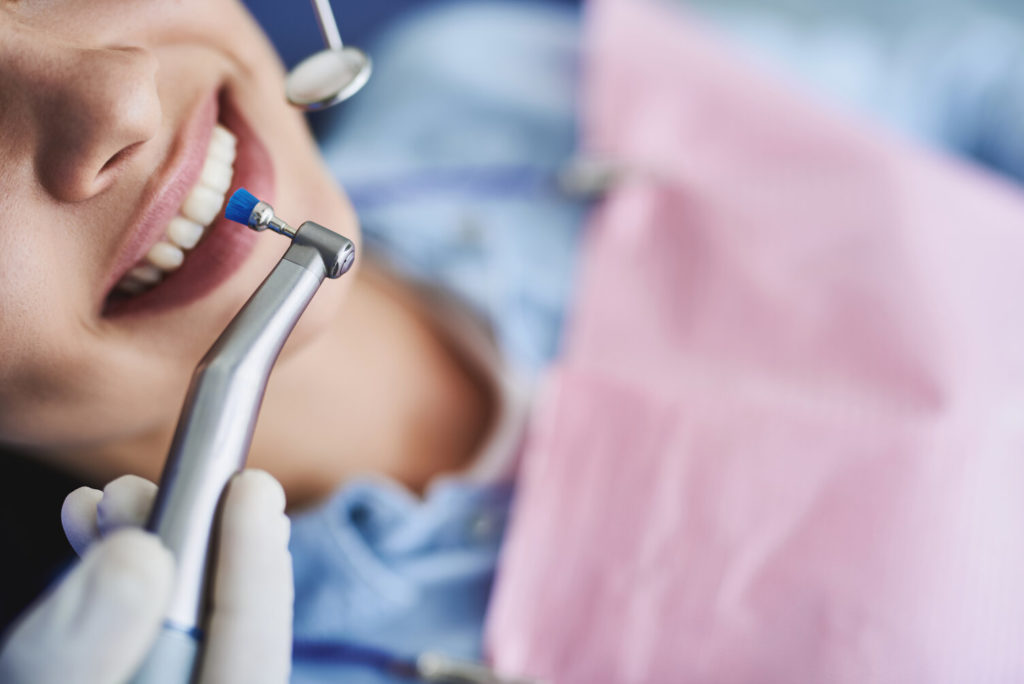
Every six months, you’re supposed to go to the dentist for a dental checkup and cleaning. This allows them to do a thorough exam of your mouth and to clean built-up plaque and tartar off your teeth. As a key part of maintaining good oral health, scheduling and attending these appointments is crucial. Even so, some people still avoid them out of fear of their dental cleanings being painful. Read on to learn whether dental cleanings hurt and what you can do to reduce sensitivity or discomfort.
Does It Hurt to Have Your Teeth Cleaned?
Though dental cleanings shouldn’t cause you pain, some complications may make your teeth or gums feel more sensitive than usual. Gum inflammation or recession, tooth decay, and other symptoms of oral disease can cause increased sensitivity. Additionally, eating or drinking too many sweet or acidic foods and beverages can lead to abnormal enamel wear, which can also make dental cleaning uncomfortable. If you experience any discomfort or pain during dental cleanings, be sure to let your hygienist and dentist know so they can find the root of the issue and take the necessary precautions to make you more comfortable.
How to Reduce Discomfort During Teeth Cleanings
If you feel uncomfortable during your dental cleanings, there are a few things that you and your dentist can try to make things more tolerable, including:
- Oral hygiene – Brush your teeth for two minutes twice per day with a soft-bristled toothbrush to avoid damaging the enamel. Floss at least once per day, preferably after you eat dinner or before you go to bed. This will lessen your chances of developing oral health issues that can cause sensitivity by removing plaque and food particles from the mouth.
- Brush gently – Brushing your teeth hard doesn’t make them cleaner. Be gentle when cleaning your pearly whites to lessen your chances of damaging them.
- Sensitivity toothpaste – Desensitizing toothpaste is made with compounds that help shield nerve endings in the teeth from irritants. Using it can help reduce discomfort during teeth cleanings. It may take several weeks for sensitivity to decrease, so start using it a while before your dental appointment if possible.
- Pain relievers –Over-the-counter pain medicine can help lessen discomfort while having your teeth cleaned. If you plan on trying a new medication, speak with your dentist first to ensure it won’t lead to any complications.
- Numbing –Ask your dentist what dental sedation options they offer. The numbing effects will make you feel more comfortable and at peace during your cleaning.
If you experience any discomfort while having your teeth cleaned, make sure to let your dentist know as soon as possible. This will allow them to locate and correct the issue so you can maintain a healthy, bright, and pain-free smile!
About the Author
If you experience pain, discomfort, or increased sensitivity during dental cleanings, RiverPlace Dental is here to help. Their team of talented Portland oral health professionals will do whatever they can to make your appointments more pleasant. They offer oral conscious sedation to make you feel comfortable and relaxed during treatment. They will get to the bottom of what’s causing the sensitivity so they can administer treatment and make it easier for you to receive the care you need. For more information on dental cleanings or to make an appointment, call RiverPlace Dental at (503) 761-1414 or visit their website.




